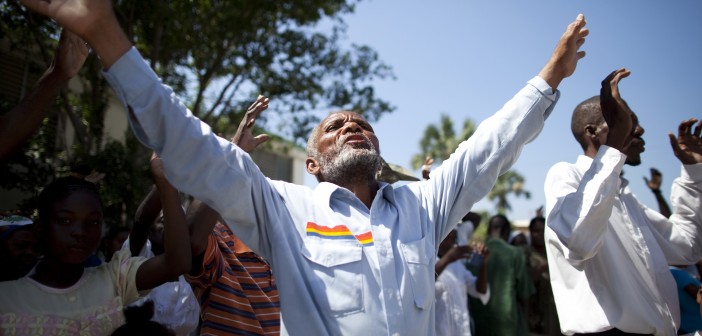Congregational revitalization happens when the community and the church come together to make it happen. But it can’t be the church saying, “This is what the community needs.” It has to be the community in the church and the church in the community finding their common voice, speaking a vision of hope, and laying out a plan for bringing their dreams and aspirations to pass.
Conducting a thorough community inspection is a first step in getting to know your community. This involves studying the demographics and conducting relational interviews and house meetings. But it is also important to identify your “mayors.”
“Mayors” are powerful people. They may or may not go to church. They may be Christian, Jewish, Muslim, or not declare any kind of faith. But you’ve got to get to know them.
I’m not just talking about the actual mayor or other elected officials — but the “real mayors.” These are the people of influence to whom even the elected officials unofficially report. These are the people who know your community better than anybody. These are the people who sit on their front porches, play checkers on the front stoop, hang out in the barber shops, beauty salons, feed supply stores, ball courts, and local hangouts who can tell you everything happening in your neighborhood.
These folks can trigger the start of any project, or they can kill any project. They can put a good word out about your church, or they can influence people to not even be bothered with your church. Church leaders must get to know these “mayors” intimately and seek to win them over to our team — even if they never worship in our churches. Why? Because they can greatly impact the growth and development of our congregations and communities.
In my community, I’ve gotten to know three “mayors.”
There is Jim Allen, a homeless man who knows everybody and everything. When my hubcaps were stolen off my car twice in one month, Jim knew who did it, where they were, and that the police had locked up the thieves. Jim and I developed such a close bond that he appeared to know my every movement.
Another “mayor” is a middle-aged woman named Kathy Peterson, who has provided critical leadership for the major community association in our neighborhood. Kathy’s influence reaches from city hall to the surrounding street corners.
Still another is an elderly woman named Ms. Green. Everyone knows her because she sponsors a host of educational programs for the community, particularly for seniors. Because seniors have more free time on their hands than most people, they are a powerful force in the community’s ability to revive itself.
“Mayors” are powerful people. They may or may not go to church. They may be Christian, Jewish, Muslim, or not declare any kind of faith. But you’ve got to get to know them.
This article is adapted from Joe’s most recent book, The Power of REAL: Changing Lives, Changing Churches, Changing Communities, which he wrote with Christine Shinn Latona and was published by Not Just a Curtain Puller in 2011. Used by permission. In this book, Daniels uses the literary device of a fictionalized mentoring relationship between his current self and his younger self. The imaginary breakfast meetings, phone calls, and training sessions convey sage advice useful to many church leaders, but the book is particularly relevant to those getting started in ministry, especially in urban settings or other contexts in need of significant renewal. This book is available from Amazon and Cokesbury.







